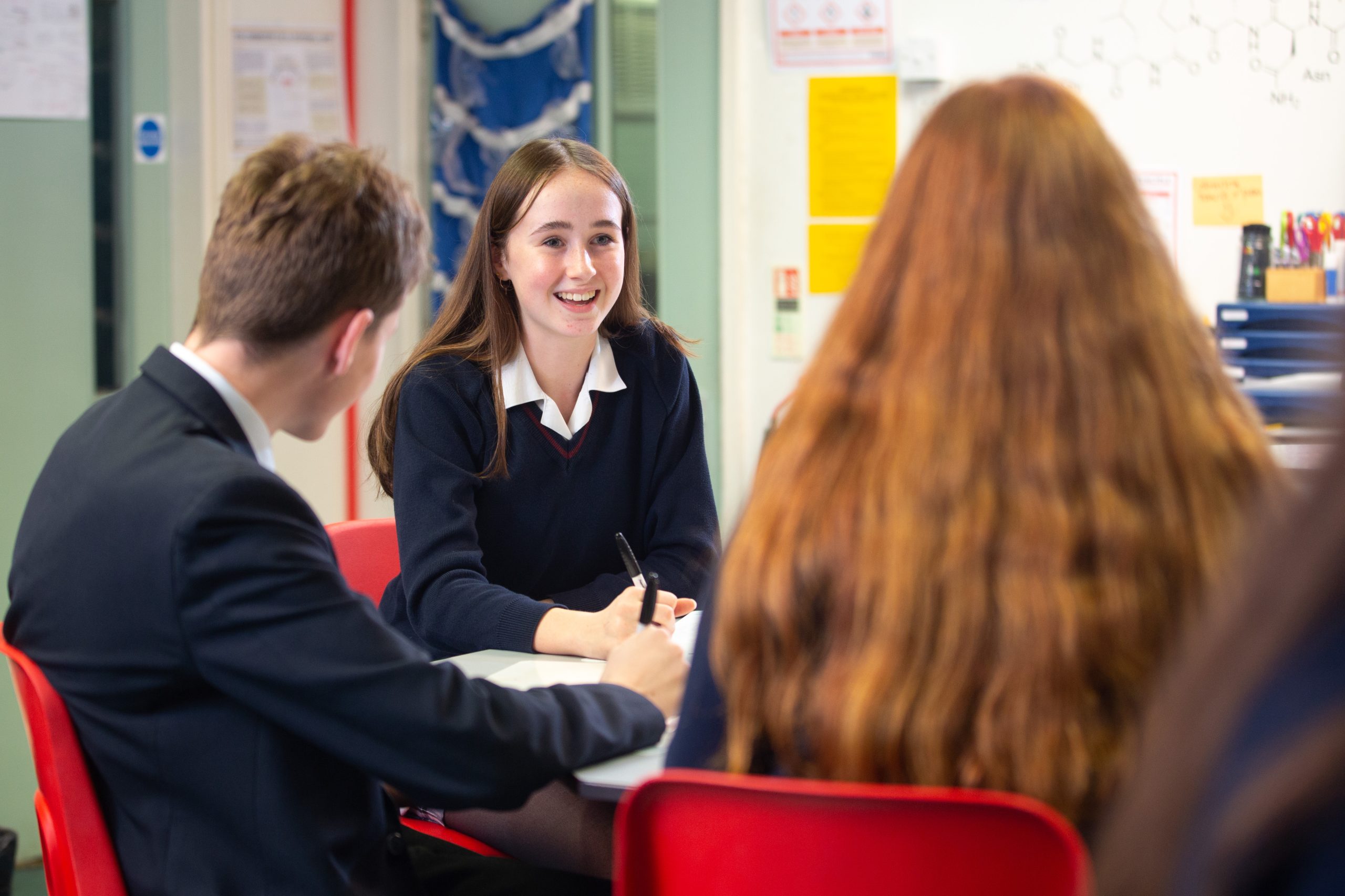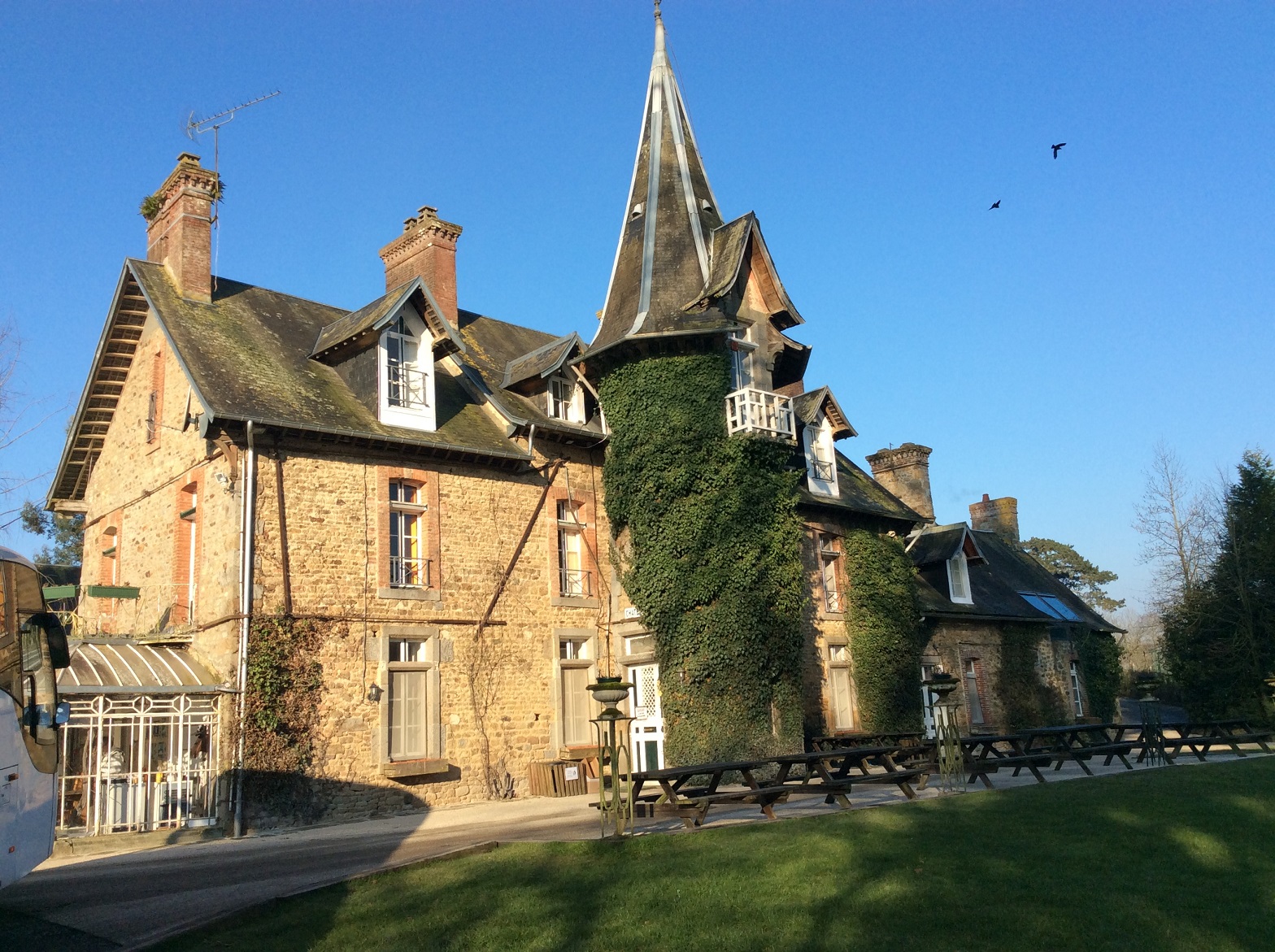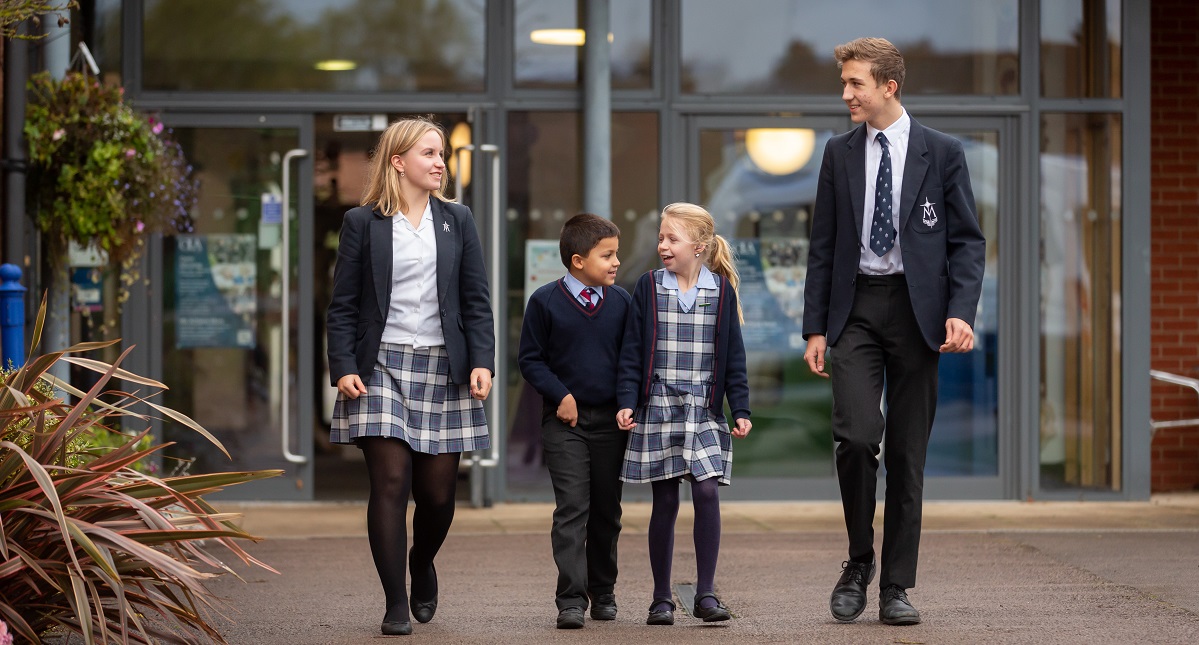
“One language sets you in a corridor for life.
Two languages open every door along the way.”
Frank Smith
Academic Changes – September 2022
Please visit the Senior School Curriculum page via the button below for changes due to come into effect from September 2022.
Overview of the Modern Foreign Languages curriculum at OLA
At OLA we recognise the importance of studying additional languages, in openings up significant opportunities to pupils. Modern Foreign Languages is central to our core curriculum for pupils to Year 9, enabling them to make intelligent choices to pursue French or Spanish at this point.
Subjects are taught mainly through the target language by native speakers, a distinctive strength at OLA. The emphasis is to build confidence in speaking and listening and developing an understanding of written language and grammar. Pupils will learn to be proficient writers and speakers in French or Spanish and to develop their ability to use their language independently.
Pupils with near-native language level in German may have the opportunity to develop their language skills and gain an additional GCSE qualification. This is offered after school as a club once a week. Pupils with a near native level in other languages will be encouraged and supported to take examinations as external candidates.
The department is well resourced with specialist teaching facilities. All classrooms have interactive whiteboards, with specialist IT rooms available for language lab use. Pupils have their own copy of the course-book, as well as bespoke learning resources. Differentiated activities are provided via online learning resources and authentic texts, whilst all language learning is targeted at advancing individual needs with levelled core texts.
In studying modern foreign languages, we aim for our pupils to be ambitious, successful and happy learners.

Years 7 and 8 Curriculum
In Year 7, pupils will study either French or Spanish, and will progress with their core language up to Year 9.
The curriculum is broad and balanced’ for example, topics taught in Years 7 and 8 include family, school, hobbies, use of technology, town and country, holidays and festivals. All four language skills (Listening, Reading, Writing and Speaking) are regularly assessed across each academic year in a variety of ways.
Year 9 Curriculum
In Year 9, pupils develop a strong grasp of grammar in topical contexts like social media, health and fitness, holidays, future plans and careers. Pupils will also extend their cultural appreciation by developing knowledge of countries where the target language is spoken, supporting them to become global citizens.

Pupils immersing themselves into Spanish culture
Trips for Years 7 to 9
The following or similar trips are offered as part of the course:
1. Chateau de la Baudonniere, Normandie (France)
2. Andalucia (Spain)
Co-curricular Activities Years 7 to 9
We are continuously exploring new ways to enhance our existing language and co-curricular activities provision. We provide activities such as:
1. Spanish/French themed events
2. Performance of a play in French or Spanish by a professional Theatre company
3. Cultural celebrations
4. After-school film club
5. Video links with Target language schools
Years 10 and 11 Curriculum

The topics covered within the course include:
1. Theme 1: Identity and culture (family, use of technology/free time)
2. Theme 2: Local, national, international and global areas of interest (Home and local area/social issues/global issues/travel and tourism)
3. Theme 3: Current and future study and employment (School and education/post 16 studies/the world of work)
This new GCSE course puts an emphasis on being able to reuse language independently.
This course is assessed as follows:
Paper 1: Listening Written examination: 35 minutes (Foundation Tier), 45 minutes (Higher Tier) • 40 marks (Foundation Tier), 50 marks (Higher Tier) • 25% of GCSE
Paper 2: Speaking Non-examination assessment) • 7–9 minutes (Foundation Tier) + preparation time, 10–12 minutes (Higher Tier) + preparation time • 60 marks (for each of Foundation Tier and Higher Tier) • 25% of GCSE
Paper 3: Reading Written examination: 45 minutes (Foundation Tier), 1 hour (Higher Tier) • 60 marks (for each of Foundation Tier and Higher Tier) • 25% of GCSE
Paper 4: Writing Written examination: 1 hour (Foundation Tier), 1 hour 15 minutes (Higher Tier) • 50 marks at Foundation Tier and 60 marks at Higher Tier • 25% of GCSE
Trips in Years 10 and 11
The following optional trips will be part of the course:
1. September 2019: Chateau de la Baudonniere, Normandie (France)
2. October 2020: Andalucia (Spain)
Co-curricular Activities for Years 10 and 11
1. Individual sessions of speaking preparation at lunchtime
2. Languages at work talks






